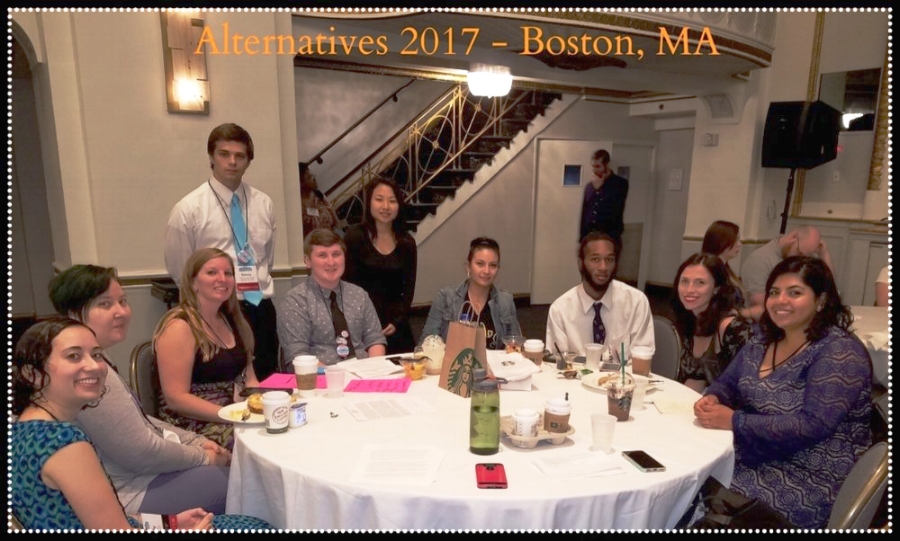History of the Alternatives Conference
The Alternatives conferences grew from the roots of the mental patients’ liberation movement, now known as the peer recovery movement, which started in the U.S. in 1969 with the founding of the Insane Liberation Front, a self-help and advocacy group in Portland, Oregon. Riding the wave of the civil rights movement, other such groups soon sprung up.
In 1972, movement organizers held their first national conference—the Conference on Human Rights and Against Psychiatric Oppression—in Detroit. These conferences, held annually through 1985, with a “small but fervent group of activists” were an important means of connecting with individuals and groups from different parts of the country as well as a place for sharing new ideas. They had no funding and were held on college campuses or in other inexpensive locations.
By 1985, the Community Support Program of NIMH had become convinced that the peer movement had important ideas and skills to contribute to community inclusion and they funded On Our Own of Baltimore to host the first Alternatives conference, at Loyola University in Baltimore, Maryland. Alternatives then became the movement’s annual conference.
According to Dr. Ron Manderscheid, executive director of the National Association of County Behavioral Health and Developmental Disability Directors and the National Association for Rural Mental Health, the most important innovations in the mental health field in the last 20 years have been inspired and created by the peer movement. The most important innovation is the recognition that people who experience emotional distress and crisis can and do recover to live full lives in the community. The peer movement has also advanced alternative understandings to traditional biomedical models of mental illness, including trauma-informed paradigms that view distress as a response to marginalization and violence. The conferences have also highlighted the importance of the peer voice and peer support in transforming the system from its focus on maintenance to promoting recovery. These achievements were recognized in the 2003 report of the President’s New Freedom Commission on Mental Health; its vision statement begins: “We envision a future when everyone with mental illness will recover…” The report also states that “consumers,” along with family members, would drive this recovery movement.
Our national Alternatives conferences have played a vital role in driving this transformation.
In a letter dated April 9, 2013, to then Health and Human Services Secretary Kathleen Sebelius when the Alternatives conferences were threatened, Bonnie Schell wrote:
“I went to my first Alternatives Conference in 1991…The Santa Cruz Board of Supervisors paid for five consumers of mental health services to go. When I saw close to a thousand consumers organizing and presenting their programs, I was simply blown away with inspiration and determination that back in Santa Cruz we could do more than take our medication and be appointed as tokens on committees where speaking up was most often viewed as a symptom.”
She continued: “We came back from Alternatives intent on starting a drop-in center…By 1995 I was managing the Mental Health Client Action Network in Santa Cruz, Calif.—with peer counselors, a 17-station computer lab, 12 support groups, art and cooking opportunities…” Note: The drop-in center is still going strong in 2017!
“The fires…behind Alternatives [were] passed on to a new generation of peer leaders and new programs…[and]to behavioral health administrators who have gotten the message that recovery and resiliency are not only possible but to be expected.”
This is one of hundreds of testimonies people have given about the power of the Alternatives Conference to change lives. Join us this year as we “return to our roots” and experience the life-enhancing power yourself!
Vintage footage of Judi Chamberlin, Howie the Harp, Sally Zinman, George Ebert and Joe Rogers speaking out against forced "treatment."
Link to video of Judi Chamberlin’s Advocacy
Click button below to learn more about the C/S/X movement
~~~~~~~~~~~~~~~~~~~~~~~~~~~


